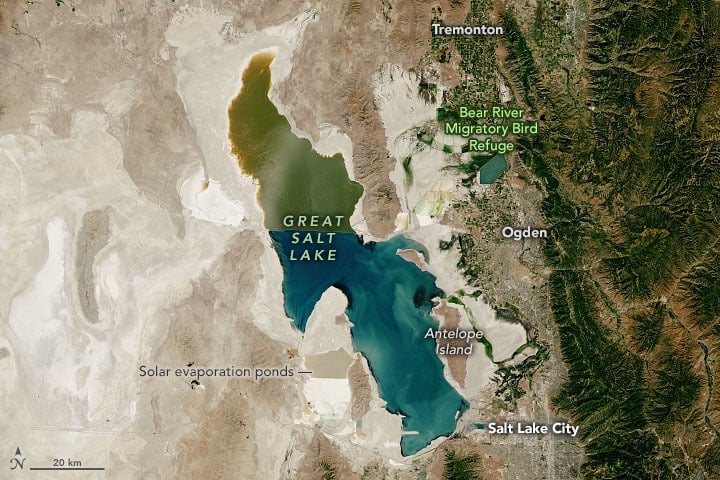
An ongoing drought and excessive water usage have caused the water levels at Utah's Great Salt Lake to hit historic lows. Since 1850, the lake has lost 73 percent of its water and 60 percent surface area. A January 4, 2023, report by scientists at Brigham Young University warns that the saline lake could disappear within five years if no action is taken.
The Great Salt Lake is critical for the survival of local industries. These include mineral extraction and brine shrimp harvesting. The businesses contribute about $1.5 billion a year to Utah's economy. The saline lake also provides a habitat for around 10 million migratory birds. Its loss would be devastating for both.

But the scientists have a bigger concern. The loss of water will expose harmful minerals like mercury, nickel, and lead trapped in the lakebed. The particles, carried by the gusty winds, could cause serious health issues in adults and children. Salt Lake City already suffers from poor air quality in the winter. This could make matters worse. The toxic dust can also damage crops, reduce soil fertility, and cause snow to melt.
Fortunately, all is not lost yet. The scientists believe the lake can be saved if the state's water usage is reduced by 30 to 50 percent. This will allow millions of gallons of water to flow from streams and rivers directly into the lake over the next two years.

The warning has not gone unnoticed. In early February 2023, Utah lawmakers unveiled a series of water conservation measures. They include incentivizing farmers to switch to crops that need less water. The officials also extended Utah's grass removal rebate program. The program encourages residents to replace lawns with drought-resistant plants. Hopefully, the timely action will help save the Great Salt Lake.
Resources: CNN.com, NPR.com, theGuardian.com
